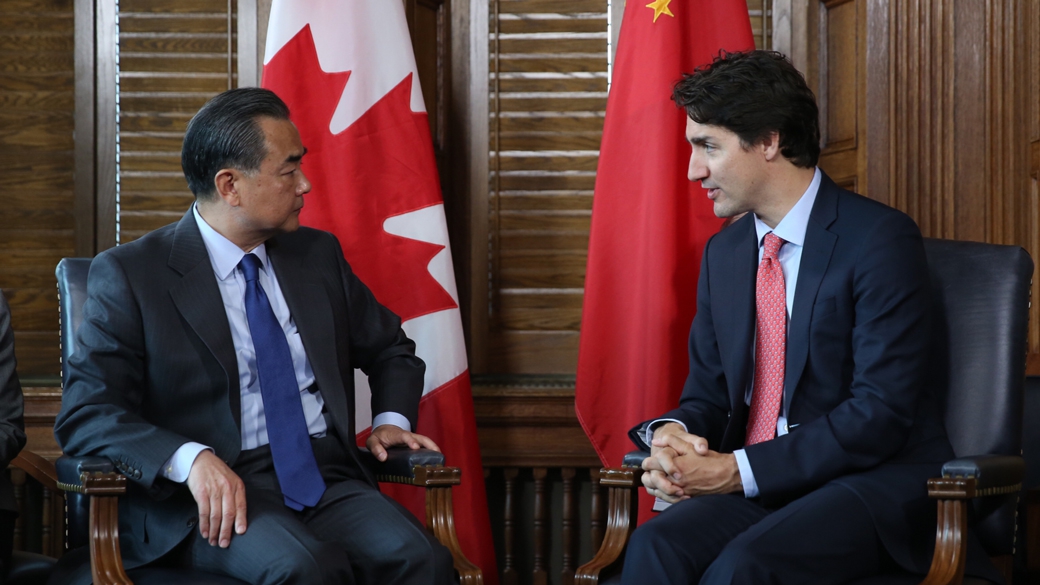Justin Trudeau will arrive in China at the end of this month, 43 years after his father was the first Canadian prime minister to visit the People’s Republic.
Trudeau will be in China from August 30 to September 6, with an itinerary that includes the G20 Leaders’ Summit on September 4 and 5 in Hangzhou, according to a release issued by the prime minister’s office Thursday morning.
The visit should further clarify a bilateral relationship that has seen an interesting first chapter in the nine months since Justin Trudeau’s swearing in, beginning with President Xi Jinping’s lauding of the senior Trudeau’s diplomacy during a brief meeting with his son at last November’s G20 in Antalya, Turkey.
“That was an extraordinary political vision,” Xi told reporters of Pierre Trudeau’s establishment of diplomatic relations with communist China two years before U.S. President Richard Nixon’s historic visit in 1972. “China will always remember that.”
Indeed, veteran Canadian diplomat Jeremy Kinsman, who was involved in rapprochement talks at the Stockholm embassy in 1969, says years after Canada’s recognition of the republic, when he was at the UN, Chinese diplomats would greet his “Good morning” with, “Ahhh, Canada – Trudeau! Trudeau!”
On Pierre Trudeau’s 1973 visit, which included a meeting with Communist Party Chairman Mao Zedong, he was accompanied by his wife, Margaret, then seven months pregnant with Justin Trudeau’s younger brother, Sacha.
His son will be visiting a very different China – one whose economic progress has lifted 800 million people out of poverty over years of market reforms that generated consistent 10 per cent growth in a rise that has made it the second-largest economy in the world. While that burst has plateaued, with China posting its slowest growth rate in 25 years in 2015, Moody’s on Thursday boosted its forecasts for China’s growth in the wake of “significant” fiscal and monetary policies.
What has remained consistent during the still unsettled post-Cold War global geopolitical realignment is China’s growing resistance to outside pressure on human rights or any possibility of democratic reforms.
When China’s foreign minister, Wang Yi, was in Ottawa in June, the visit was overshadowed by his testy response to a question from iPolitics reporter Amanda Connolly on human rights. The incident prompted an official protest by the Trudeau government.
During the visit, Wang demanded a visit with Trudeau, which was described by The Globe and Mail as an unusual diplomatic move that underscores China’s increasingly assertive posture on the world stage.
The upcoming visit also comes almost one year after John Manley – the president and CEO of Canadian Council of Chief Executives – criticized Stephen Harper’s government for mismanaging bilateral relationships with China and Mexico. In October 2015, Manley reiterated a call for the incoming Liberal government to pursue a free trade agreement with China.
The Liberal government will reveal its new trade and export strategy by November, replacing the Harper government’s 3.5-year-old Global Markets Action Plan.
In the PMO release issued Thursday, Trudeau said “Strengthening our relationship with China is essential to growing our middle class, and creating new opportunities for Canadian businesses.”
“On this trip, I will strive for a closer, more balanced relationship between Canada and China – one that unlocks the untapped potential in our two countries’ commercial ties, and advances important issues like good governance, the rule of law and the environment,” said Trudeau.
The visit includes stops in Beijing, Shanghai, Hangzhou, and Hong Kong. The stops “will provide an opportunity for the Prime Minister to connect with Chinese leaders in government, business, and the public at large.”
The PMO’s release says that at the Hangzhou Summit, G20 leaders will consider measures to lift global economic growth and investment, create jobs, strengthen the middle class, reinforce the resilience of the global financial system, and increase trade and investment.
“Canada welcomes the agenda brought forward by China as this year’s G20 host, which encourages members to work together towards an innovative, interconnected, and inclusive world economy,” concludes the release.
If the historic optics of the trip facilitate that agenda, Kinsman says, it can’t hurt.
“He will be in China as a Canadian Prime Minister extending the ground-breaking investment in a relationship initiated by a predecessor, who happens to have been his father.
“If there’s magic in that, so be it.” ![]()
Read more: Politics















Tyee Commenting Guidelines
Comments that violate guidelines risk being deleted, and violations may result in a temporary or permanent user ban. Maintain the spirit of good conversation to stay in the discussion.
*Please note The Tyee is not a forum for spreading misinformation about COVID-19, denying its existence or minimizing its risk to public health.
Do:
Do not: